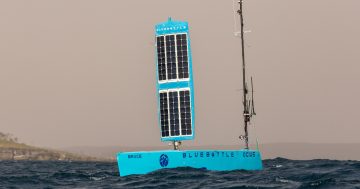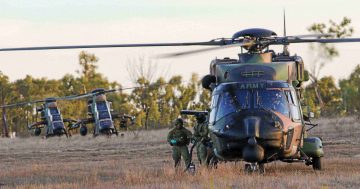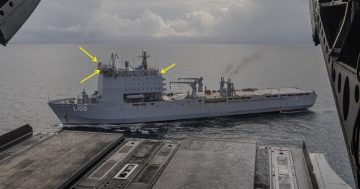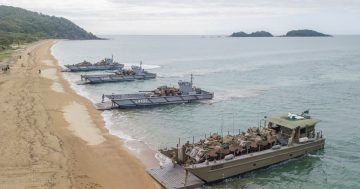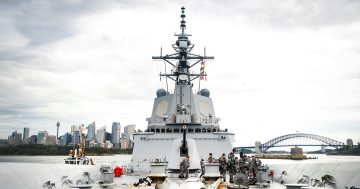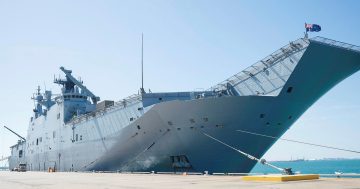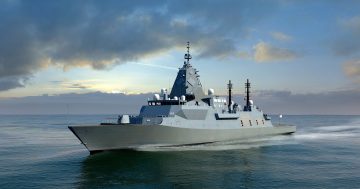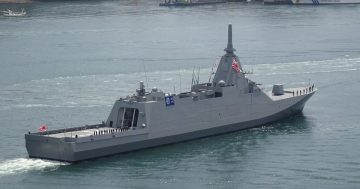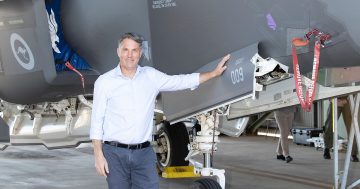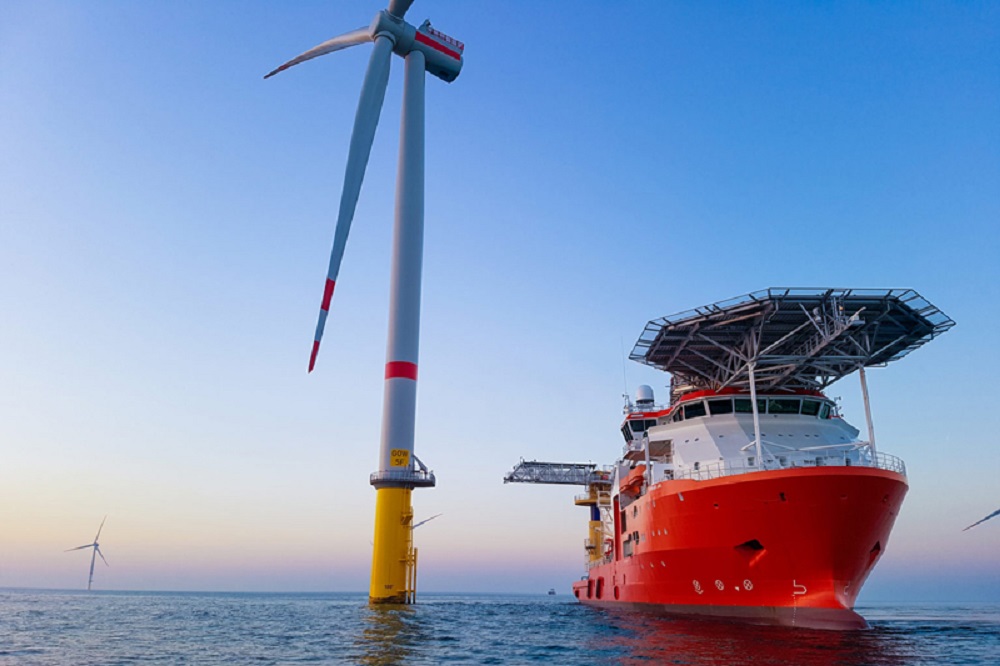
The MV Normand Jarl will become the ADV Guidance in ADF service. Photo: ADF.
The Australian Defence Force has confirmed the acquisition of a former Norwegian-flagged multi-purpose offshore vessel to bolster its own fleet of support ships.
The acquisition of the MV Normand Jarl was first reported by Australian Defence Magazine in early April and was subsequently confirmed by the Department of Defence.
An 8 April release said the Australian Government is continuing to deliver enhanced maritime capability to the ADF with the procurement of a dedicated Undersea Support Vessel, and that the vessel would be named Australian Defence Vessel (ADV) Guidance in service.
The vessel cost $110 million, and will be used to support trials and activities relating to the development of new underwater technologies such as uncrewed and autonomous vehicles and systems, and fixed and deployable sensor arrays.
“Defence is demonstrating its commitment to providing a cutting-edge capability, which will expand the ADF’s ability to deliver multiple undersea project outcomes,” Deputy Secretary Naval Shipbuilding and Sustainment Tony Dalton said in the release. “ADV Guidance will be instrumental in developing and testing robotic and autonomous underwater systems, ensuring Defence can compete and succeed in a wide variety of complex undersea environments.”
The 107-metre-long, 7400-tonne MV Normand Jarl is the fourth such vessel to be acquired by the ADF, the others being the ADVs Ocean Protector, Ocean Shield and Reliant.
All four of these vessels feature brightly coloured blue or red hulls, a helipad mounted high above the bow, and various cranes and winches on the main deck, which are suitable for the loading and unloading of cargo, or supporting autonomous vehicle operations.
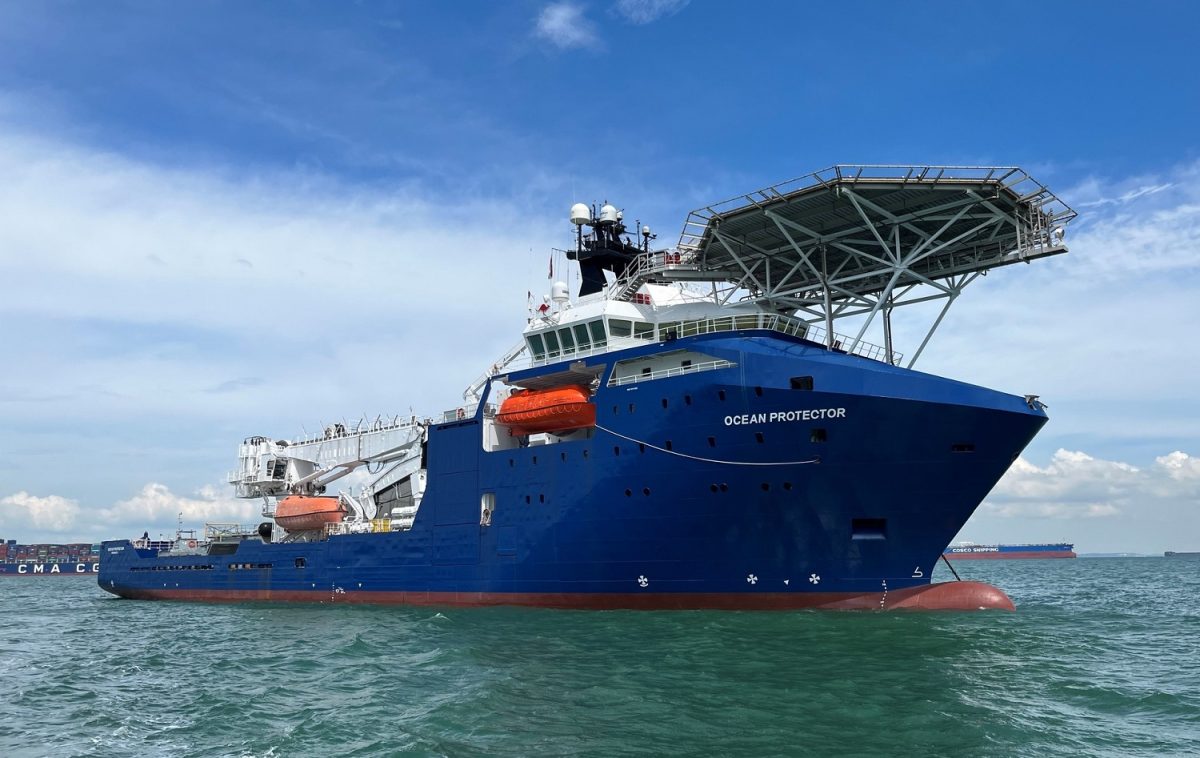
The ADV Ocean Protector. Photo: ADF.
The ADV Reliant has been designated as the ADF’s Pacific Support Vessel, and she embarked on her first such mission to Timor Leste and several Pacific island nations in September and October last year.
“As a highly adaptable vessel, Reliant will expand the range of support Defence provides across the region, including search and rescue, maritime surveillance, transport of essential cargo, humanitarian assistance and disaster relief,” Commander of Australian Defence Force Operations in the South West Pacific, Major General Scott Winter, said at the time.
More recently, Reliant deployed to the Solomon Islands with a deployable geospatial support team and Army engineers to conduct hydrographic and littoral survey missions for proposed locations of a new border outpost.
But the acquisition of the Reliant for the Pacific mission hasn’t been greeted by all with enthusiasm. A May 2022 report by the Australian Strategic Policy Institute (ASPI) described the vessel as likely to be of limited use in the humanitarian aid and disaster relief (HADR) mission.
“In many disasters, ports and airfields are initially rendered inoperable,” the report said. “The coastal hydrography is often altered, drastically increasing the risk of running aground. Re-establishing ports and airfields and surveying the coast can take days or sometimes weeks.
“When no port or airport is operable, you need a ship that can operate and support a useful number of helicopters and landing craft, or one that can itself get on and off a beach. The Reliant can’t do any of that,” it added.
“The ship has a helipad but is not designed to carry or support a helicopter. There’s no access from the helipad to the cargo deck, so it will be limited to flying underslung loads from the deck, which will be prevented if the crane is in use.”
Prior to becoming ADVs, the vessels are inspected and certified by a specialist civilian organisation such as Teekay Shipping and, once in service, they are sustained and partly crewed by civilians.
Teekay Shipping already enjoys an arrangement with the ADF and with Border Force that has been in place since 2003. Its services include managing and supporting the vessels through their acquisition and service, including operational support, engineering and technical services, maintenance, supply, merchant marine crew and industrial relations management, and training.
Original Article published by Andrew McLaughlin on Riotact.


